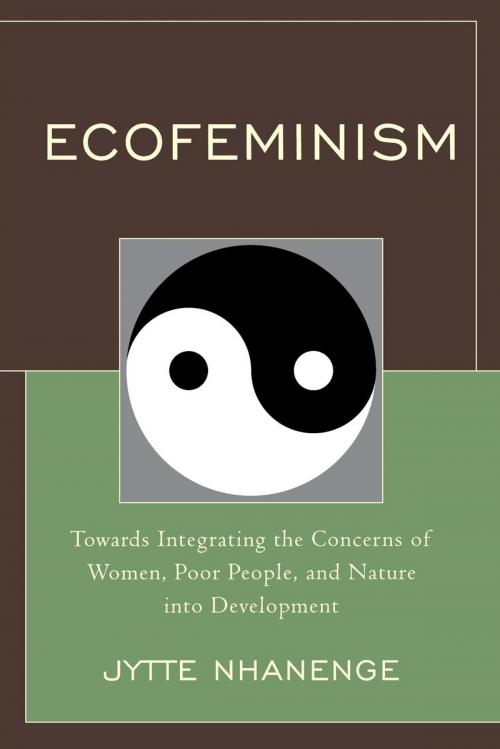Ecofeminism
Towards Integrating the Concerns of Women, Poor People, and Nature into Development
Nonfiction, Social & Cultural Studies, Social Science, Cultural Studies, Ethnic Studies, African-American Studies| Author: | Jytte Nhanenge | ISBN: | 9780761854296 |
| Publisher: | UPA | Publication: | April 1, 2011 |
| Imprint: | UPA | Language: | English |
| Author: | Jytte Nhanenge |
| ISBN: | 9780761854296 |
| Publisher: | UPA |
| Publication: | April 1, 2011 |
| Imprint: | UPA |
| Language: | English |
Ecofeminism is for those who desire to improve their understanding of the current crises of poverty, environmental destruction, violence, and human rights abuses, and their causes. It is an ecofeminist analysis of modern society's dualized, patriarchal structure, showing that one-sided reductionist, masculine, and quantitative (yang) perceptions inform science, economics, and technology, resulting in subordination of holistic, feminine, and qualitative (yin) values. This yin-yang imbalance manifests as patriarchal domination of women, poor people, and nature, leading to the above crises. Since similar values inform Third World Development, its activities are also exploitative. Thus, rather than improving human well-being, development increases poverty and natural degradation in the South. Modern patriarchy manifests in neo-liberal policies that promote 'free' global economic markets and trades, generating huge profits to the political and economic elites with devastating results for societies and nature worldwide. Unless we increase our awareness and demand changes that balance the yang and yin forces, patriarchal domination will eradicate life on planet Earth.
Ecofeminism is for those who desire to improve their understanding of the current crises of poverty, environmental destruction, violence, and human rights abuses, and their causes. It is an ecofeminist analysis of modern society's dualized, patriarchal structure, showing that one-sided reductionist, masculine, and quantitative (yang) perceptions inform science, economics, and technology, resulting in subordination of holistic, feminine, and qualitative (yin) values. This yin-yang imbalance manifests as patriarchal domination of women, poor people, and nature, leading to the above crises. Since similar values inform Third World Development, its activities are also exploitative. Thus, rather than improving human well-being, development increases poverty and natural degradation in the South. Modern patriarchy manifests in neo-liberal policies that promote 'free' global economic markets and trades, generating huge profits to the political and economic elites with devastating results for societies and nature worldwide. Unless we increase our awareness and demand changes that balance the yang and yin forces, patriarchal domination will eradicate life on planet Earth.















